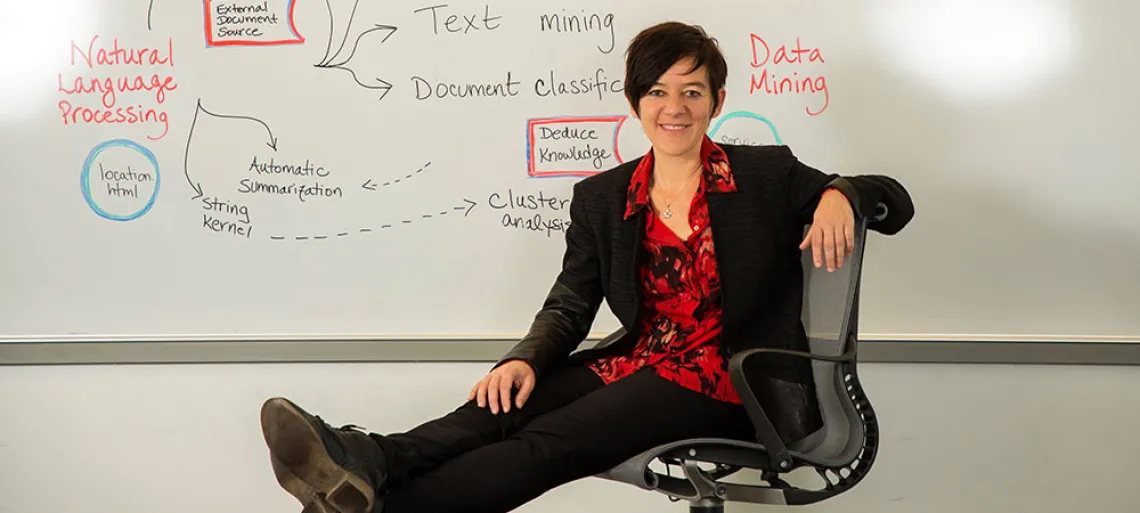Eller MIS Professor Awarded $1.4 Million From NLM/NIH To Study Audio Information Delivery

Gondy Leroy, professor of Management Information Systems (MIS) in the Eller College of Management at the University of Arizona, is the recipient of a new $1.4 million National Library of Medicine/National Institutes of Health (NLM/NIH) grant to study how to use and optimize audio for health information.
Increasingly, new developments in information and computer technology—such as virtual assistants and smart speakers—are potentially jeopardizing efforts to prioritize patient centeredness through plain writing and other health literacy tactics. However, these technological innovations could make being informed and achieving good health more efficient and cost effective.
For example, in 2020, annual growth of smart speakers installed in U.S. homes grew by 30-40 percent, and almost 20 percent of all questions asked of these smart speakers are related to health and wellness. Additionally, hospitals such as Cedars’ Sinai are testing smart speakers for pre-surgery information review.
“Our project will evaluate the use of audio on its own and in combination with text to try to determine the optimum delivery model for patient education,” says Leroy. “The grant from NLM/NIH will enable us to delve deeply into identifying audio features that hinder, bias, or distort comprehension and help lead us to practical solutions for ideal comprehension.”
Leroy and her co-investigators—David Kauchak from Pomona College and Steve Rains, Jeff Stone and Philip Harber, also from the University of Arizona—will leverage their existing text simplification and optimization research as well as new work focusing on audio for health information communication. They will conduct large-scale studies on Amazon Mechanical Turk to efficiently gather data and create resources. They also collaborate with El Rio Community Health Center to study real-world interactions.
The researchers ultimate plan is to create a free, online software tool for optimizing health-related text and audio with demonstrated impact on information comprehension and retention.

